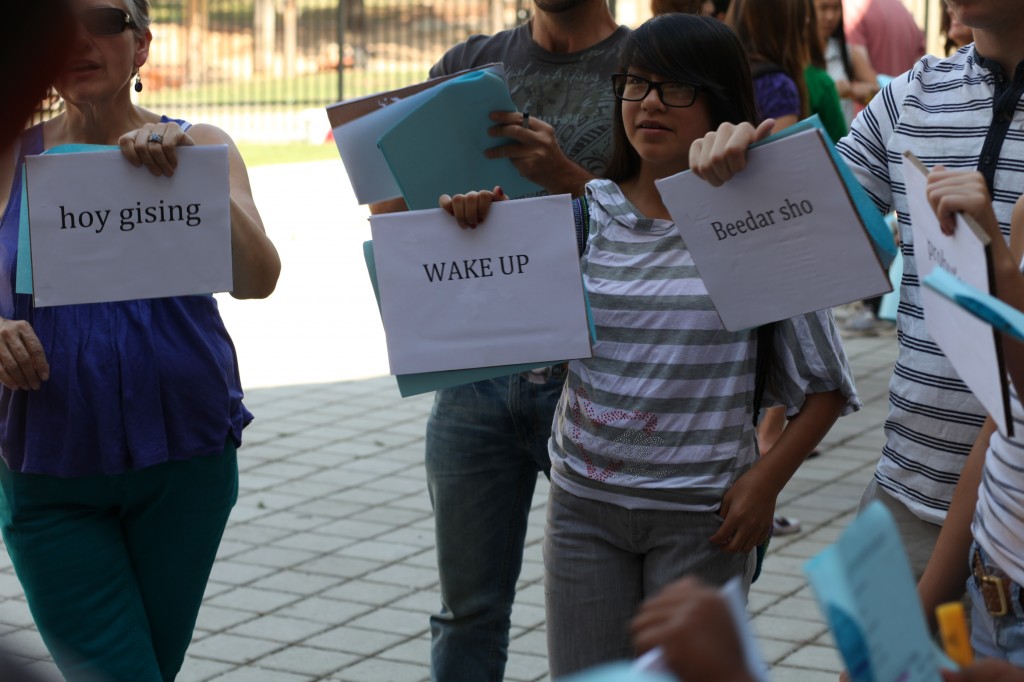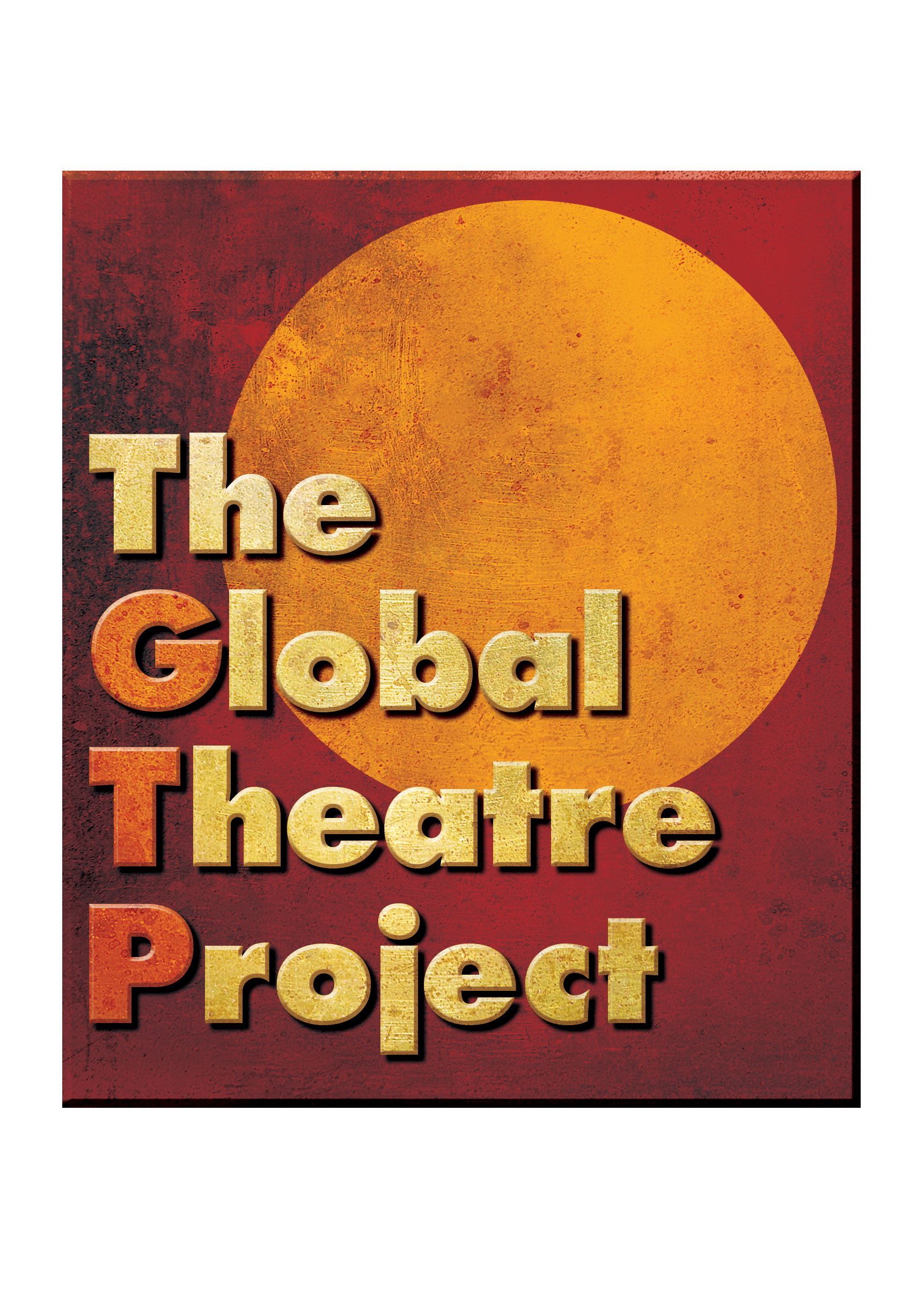COVID-19 Can Awaken The Tribe Of Man

When a crisis demands that communities and individuals must suddenly confront transition and change, it helps to turn to experts in this skillset — to those who have lived a life of transitional experience, of shifting habits and environments. Experts who know something of creating community in spaces where there was none before. Or where it seemed utterly impossible to do so.
Now, in the face of the COVID-19 crisis we see an immediate response to isolating. Creative acts are being envisioned and manifested in order to connect. Because that is a basic human need. It is also a world that I have been living in all my life as an artist. Transitioning from project to project, space to space. From employment to unemployment, from feast to famine. Artists, who have always been on the outskirts of mainstream society, have a true sense of isolation and an instinct to use that time and space as a platform for creative innovation and experimentation. All based in the drive to connect with others.
In cities and towns around the world we see artistic expression and exchange: a plan for music-making in Italy when all are to open their windows and perform their instruments at a designated time, children paint rainbows and hang them out their windows, Spanish artists give balcony concerts. Saying “I am here” and being acknowledged is a primal need. To be seen and heard. As Martin Buber stated, “If the world of man is to become a human world, then immediacy must rule between men, and thus also between human house and human house…” and this is what we are seeing. Our neighbors across the globe, shuttered in their homes seek to create intimacy even between the spaces of their architecture. Between the borders of their walls. And this presents a question vital for our future. What is that instinct to connect and why have we ignored it as we were busy building a world in which we have become more and more disconnected?
Now that the virus is on our shores and it is our turn to shutter inward, even more plugged into our internet and cellphones as a way to manage this transitional crisis, what would happen if that system, as well, disappeared? What would we find remaining beneath the web of immediacy and noise that has inundated our society and isolated so many from actual intimate connection and activity? We have, in these last years, so insistently partitioned ourselves into groups and ideas that many of us have forgotten how to build and rely on true community.
I suggest we can, in this transition violently forced upon us, stand on Four Pillars that can guide us. The same methodology we use at The Global Theatre Project and that I teach to my students: Kindess, Community, Artistry, 7 Whole Artist Elements.
Kindness addresses the urgent need to heal our communities and our relational capacity through radical caring and generosity. Community, recognizes an actual (not perceived) need; requires listening, inquiry, and celebrating connections that inspire collaboration, partnership and engagement. Artistry acknowledges the value of authentic creative expression contained within each of us.
The 7 Whole Artist Elements activate qualities of a theatre artist’s process to become a more awakened, empathetic participant in our community. These are Curiosity, Courage, Hunger, Passion, Connectivity, Knowledge and Sensual Development (five senses). These elements emerged from the questions: What would happen if individuals were awakened to their own creative and intellectual capacity? How would that change relationships and society? How would it impact our neighborhoods? Our planet?
These 7 Elements respond to what my colleague and mentor, Mack McCarter of Community Renewal International, has identified as the basic requirements for a healthy community being grounded in the imperative of “growing healthy people” in order to grow healthy relationships. In other words a “Whole Person” who is able to reach their highest capacity. Our collaboration has allowed us to envision the necessity of what Mack identifies as “Re-Villagizing” our communities with individuals who are both whole in the CRI definition and who are able to respond to the needs of their world with authoritative creativity and intellectual engagement. Whole People who are also Whole Artists would allow communities to reflect what historian Lewis Mumford referred to as a living unity of arts and daily life. Where all contributed, created, and solved problems not as specialists who are separated by category of work, but neighbors who offer the best of their creative and intellectual selves to the benefit of the whole.
We will survive this crisis. Yet nothing will be what it was back in early January. We will have to mourn our dead and guide those who survived back toward life and recovery, we will have to repair our economy and confront whatever social and political challenges will be waiting for us. We will have new heroes, new leaders. But what I hope for this world to come, is that we step out of our houses and onto the streets prepared and equipped to grasp the opportunity that is being given to us. I hope that we can truly understand our participation in our communities as valuable and unique when we contribute from an expanded creative and intellectual capacity. And that the same goes for our neighbor next door or on the next continent. This virus is cruelly demonstrating that skin color, religion, sexual orientation, gender, age, ethnicity are not borders that separate us but our common, interconnected, destiny. The question is whether it is a destiny we will choose to embrace.
It won’t be easy. Many have taken to arming themselves. But we can’t shoot a virus. So it must be concluded that the fear we have is not of what we can’t see but of what we don’t know — our own value and that of all others around us. This is the true illness of our time.
Jonathan Haidt lays out in his book, “The Righteous Mind,” how difficult it is for groups to relate harmoniously. But the opportunity we have now is to question who, exactly, is in ‘our group.’ I propose it is the ‘Tribe of Man’ which nature itself is reminding us is the healthier pathway. Yet how to transition to this broader relationship?
I see opportunity laid bare. Like a tree in winter stripped of leaves, the truth of it — the shape of its branches, the texture of its trunk and health of its limbs — are naked and visible. That is us at this time. We are being stripped bare and asked to look at our relationships in community, at how we use ourselves in our daily lives. Are we utilizing enough of our gifts to survive the difficulties that are personally and communally ahead? Do we have the tools to create a healthy world in which to thrive together?
Right now many are connecting to the arts and artists online for entertainment, which has a value, but an artist’s real service at this time is to remind you of who you are and what you can accomplish in your own life. What you can offer. It is time for both you and the artists amongst you to explore these gifts and experiences not to help distract but to awaken. As cities and towns shut down and we shutter ourselves in, the opportunity is at hand, if you so choose, to come to know yourself through a pathway of inquiry and creativity.
In order for this to occur two things have to happen. First, artists must recognize that their techniques, methods, experiences and approaches to looking at and engaging with the world must be reframed in their relationship to audiences, viewers, readers, listeners. The process must be shared as generously as the product. A formulated plan and systematic approach is needed to act as guides mapping this new terrain.
Second, for those who are sheltered, who are facing isolation or containment for the first time, I invite you to explore the foundation of the Four Pillars. Spend time asking directed questions that can open new conversations with others online or at your dinner table with your co-sheltered. Take your inquiries to the artists who are abundantly available now and ask for engagement on another level. Build relationships with the makers, the dreamers, the builders of new worlds.
We have been given an awesome opportunity through this crisis. Time is suddenly ours in a way most have never experienced before or will again. Many of us will suffer. They will need us all to help with the healing process; to help balance away from the fear so that what comes from this time is not the deepening of hatred and disfunction, the manipulation of people and the hardening of partisanship, but the embracing of our human community to heal one another and our world.
In taking proactive steps toward expanding the experience of our deeply-explored personal capacity we will be equipped to walk outside our doors, step into the spaces between us again and start the work of “Re-Villagizing” our world as Whole People and Whole Artists. In this way we will actively insure, as my friend Mack McCarter has eloquently stated, “that dark days will not produce dark hearts.”

